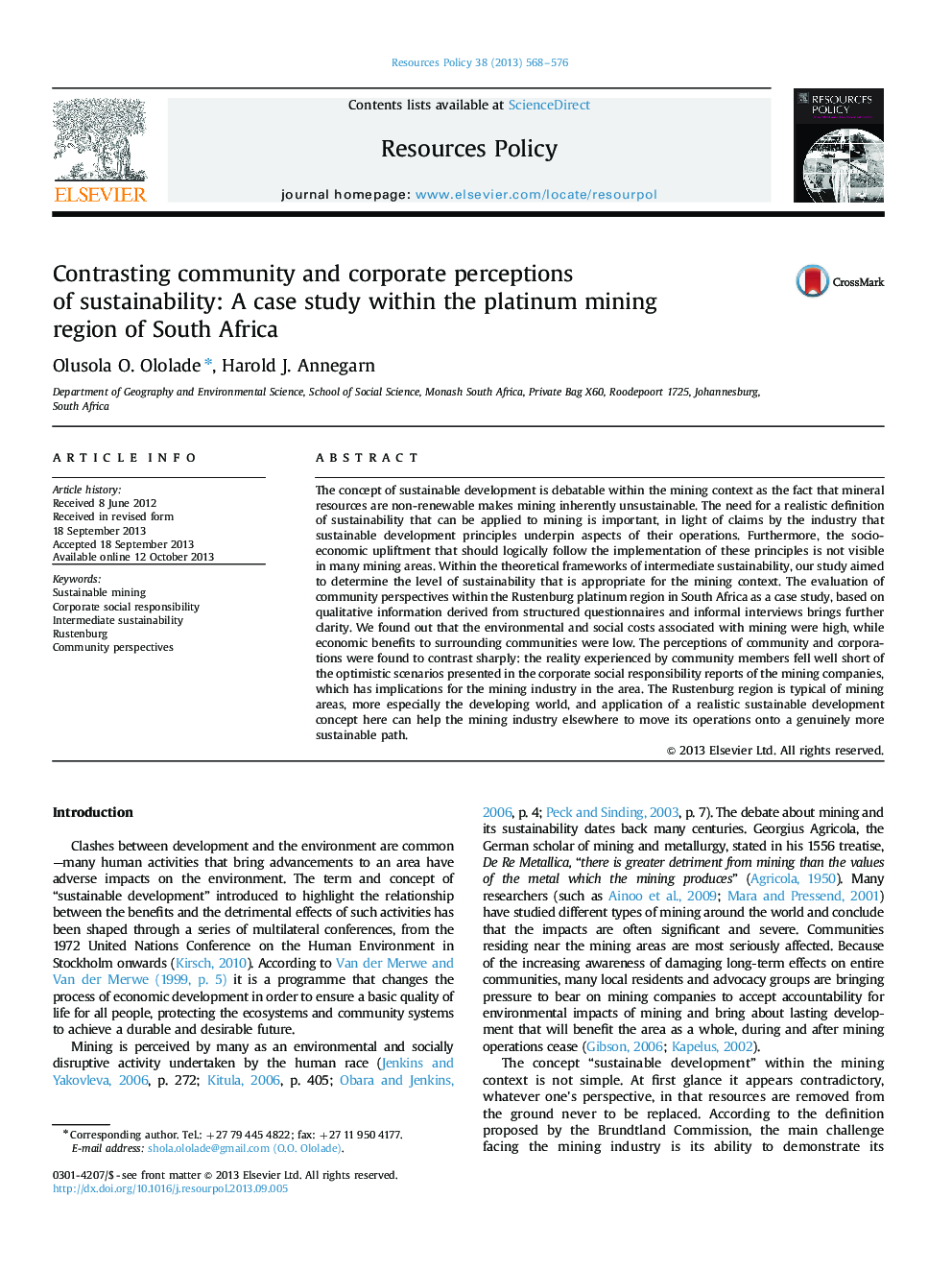| Article ID | Journal | Published Year | Pages | File Type |
|---|---|---|---|---|
| 10484050 | Resources Policy | 2013 | 9 Pages |
Abstract
The concept of sustainable development is debatable within the mining context as the fact that mineral resources are non-renewable makes mining inherently unsustainable. The need for a realistic definition of sustainability that can be applied to mining is important, in light of claims by the industry that sustainable development principles underpin aspects of their operations. Furthermore, the socio-economic upliftment that should logically follow the implementation of these principles is not visible in many mining areas. Within the theoretical frameworks of intermediate sustainability, our study aimed to determine the level of sustainability that is appropriate for the mining context. The evaluation of community perspectives within the Rustenburg platinum region in South Africa as a case study, based on qualitative information derived from structured questionnaires and informal interviews brings further clarity. We found out that the environmental and social costs associated with mining were high, while economic benefits to surrounding communities were low. The perceptions of community and corporations were found to contrast sharply: the reality experienced by community members fell well short of the optimistic scenarios presented in the corporate social responsibility reports of the mining companies, which has implications for the mining industry in the area. The Rustenburg region is typical of mining areas, more especially the developing world, and application of a realistic sustainable development concept here can help the mining industry elsewhere to move its operations onto a genuinely more sustainable path.
Related Topics
Physical Sciences and Engineering
Earth and Planetary Sciences
Economic Geology
Authors
Olusola O. Ololade, Harold J. Annegarn,
